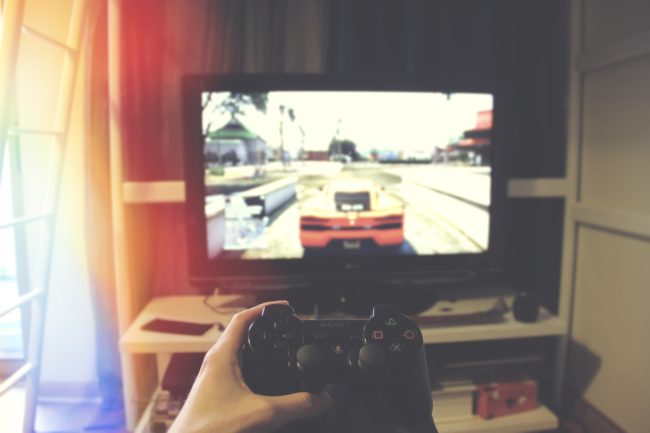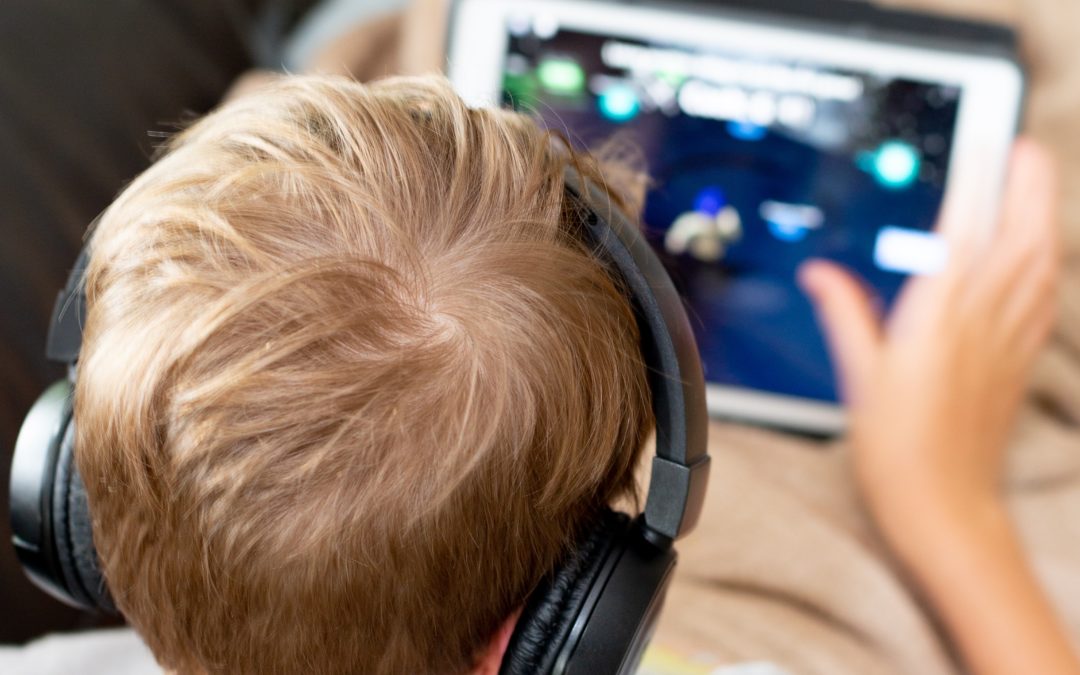
It’s the easiest form of entertainment: sit back, pick up a controller and off you go. With a huge array of games on offer and opportunities to play others online, gaming has become a firm favourite for kids all over the country. However, while we might have some awareness that too much gaming is bad for kids, it has long been unclear how much screen time is unhealthy. We spoke to psychotherapist Noel McDermott about handling gaming time for children and how to recognise when the gaming obsession has gone too far.
A growing reliance on the internet and gaming
Although gaming has been hugely popular ever since Nintendo exploded onto the scene in the 80’s, in more recent years it has become even more immersive. Millions of players are online at any given time, and gaming YouTubers have huge numbers of followers. It has never been more tempting for kids to want to spend every hour of the day on the PlayStation, and shun other activities as a result.
However, we shouldn’t be overly alarmed, argues Noel. ‘Online gaming and online life have been seen as a challenge for parents with alarmist stories appearing,’ he says. ‘However, if gaming and online addiction were so dangerous then the pandemic would have seen a very significant rise in this so-called addiction. But, it hasn’t.’
‘For the very small number of kids who develop a gaming disorder it is a severe issue. As with all psychological problems early detection and treatment is very important. However, for the vast majority of kids it’s not a disorder, but it may become unhealthy and need intervention.’
Do’s & don’ts for parents
- Don’t approach the issue with your child like their gaming or other online use is a problem. Your kids may get defensive and feel your only agenda is to stop them. To be honest they are usually correct in that assessment!
- Do take the time to find out what they like about the games.
- Don’t look at gaming or being online as all negative- remember how online life was incredibly important during the pandemic and for helping people communicate.
- Don’t assume this is all about being on their own and isolating. Most games are social now, played often between kids who know each other in real life and provide positive social glue to those relationships. If your child is playing with their friends and you take away their games, you are actually taking away contact with their real-world mates.
Positives to gaming and online spaces for children and young people
Our kids’ online lives can be worrying when we come across negative news stories about children cyberbullying or communicating with dangerous people. However, it’s important to remember the benefits that gaming and being online has for kids, such as:
- Employment and education, using online tools and computers are essential in our world
- An interest in computing can lead to many careers
- Neurological growth- whilst some believe that being online ‘rots’ your brain it usually enhances it
- Gaming is increasingly a tool in mental health research and treatment
- It is being utilised in medicine in pain management to reduce the opiate use in serious injury such as burns
- Developing friendships- it’s one of the primary ways kids make and cement real world friendships and this can be particularly true for boys making friends.
We have to be realistic if problems develop. ‘Prohibiting use of the computer and gaming won’t work as it is a part of daily life,’ explains Noel. ‘What we need to do is work with children to help them manage online use.’
Signs that gaming is a becoming a problem
- Consistent sleep deprivation issues due to gaming, affecting school etc
- Reduction in self-care and prioritising gaming
- Not managing interactions and actually replacing gaming ones for real world ones rather than enhancing or complimenting life in the real world
- Obsessing about gaming and only having this as a topic of conversation
- Not having any other interests outside of gaming and online activities
The best approach is always to talk to your child and help them manage things more effectively. One way to do this may be to limit their screen time to an hour or two a day. Ensure that there is plenty of time spent doing other positive activities such as sports, clubs or hobbies.
What to do if your child becomes obsessed
If you see your child withdrawing into their online world, not wanting to take part in other activities or being aggressive, it may be time to seek professional help. ‘The gaming use may also be a symptom of another issue so it’s important not to label until a proper assessment has been conducted,’ says Noel. ‘If your child is, for example, isolating and gaming due to bullying, diagnosing them as a gaming addict won’t help. Instead, it will cause severe harm.’
About Noel McDermott
Noel McDermott is a Psychotherapist with over 25 years’ experience. Noel’s company offer at-home mental health care and will source, identify and co-ordinate personalised care teams for the individual. They have recently launched a range of online therapy resources to help clients access help without leaving home. For more information go to his website.









